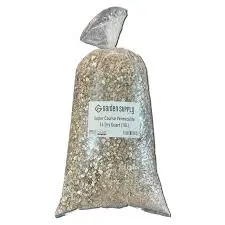Dec . 05, 2024 11:23 Back to list
Thermal Insulation Sheet Material Suppliers for Enhanced Energy Efficiency Solutions
Exploring Thermally Insulating Sheet Materials A Manufacturer's Perspective
Thermally insulating sheet materials are essential components in various industries, including construction, manufacturing, and automotive, among others. These materials are designed to reduce heat transfer, thereby enhancing energy efficiency, comfort, and safety in various applications. As a manufacturer of thermally insulating sheet materials, it’s crucial to understand the diverse types, benefits, and applications of these materials to better serve clients and meet industry standards.
Types of Thermally Insulating Sheet Materials
Thermally insulating sheets come in various forms, each suited for specific applications. The most common materials include polystyrene, polyurethane, and fiberglass.
1. Polystyrene (EPS/XPS) Expanded polystyrene (EPS) and extruded polystyrene (XPS) are widely used for their excellent insulating properties. EPS is lightweight, has a high resistance to moisture, and is ideal for insulation in walls, roofs, and foundations. XPS, on the other hand, offers superior moisture resistance and compressive strength, making it suitable for applications like below-grade insulation and insulating concrete forms.
2. Polyurethane Polyurethane sheets provide high insulation value with a thinner profile compared to other materials. They are often used in refrigeration and HVAC applications. The closed-cell structure of polyurethane provides excellent thermal performance while also being resistant to moisture and air infiltration.
3. Fiberglass Fiberglass insulation sheets are well-known for their high thermal resistance and fire-retardant properties. Though often used in batts or rolls, fiberglass sheets are also manufactured for specific applications. They are particularly valuable in industrial settings, where they can withstand extreme temperatures without compromising insulation efficiency.
4. Reflective Barriers Reflective insulation materials, often made with aluminum foil, work by reflecting radiant heat away from living spaces. They are particularly useful in hot climates and can be combined with other insulation types for enhanced performance.
Benefits of Thermally Insulating Sheet Materials
The advantages of using thermally insulating sheet materials are manifold
- Energy Efficiency Effective insulation significantly reduces heating and cooling costs. By minimizing heat transfer, businesses can lower energy consumption and reduce their overall carbon footprint.
- Comfort Proper insulation maintains a consistent temperature within buildings, enhancing comfort for occupants by preventing hot spots and drafts.
thermally insulating sheet material manufacturer

- Noise Reduction Many insulating materials also have soundproofing properties, contributing to a quieter indoor environment, which is especially beneficial in urban settings
.- Safety Fire-resistant thermally insulating materials contribute to building safety, helping to slow the spread of flames and protect structures.
- Versatility Thermally insulating sheets can be tailored to meet specific industry requirements, making them suitable for a wide variety of applications—from industrial equipment to residential buildings.
Applications in Various Industries
Thermally insulating sheets find extensive applications across numerous sectors
- Construction In building construction, insulating sheets are integral in walls, roofs, and floors, contributing to energy-saving designs that comply with building codes.
- Manufacturing In manufacturing processes, thermal insulation is crucial for controlling environmental conditions, protecting sensitive equipment, and ensuring worker safety in facilities where heat is a concern.
- Automotive The automotive industry employs thermal insulators to enhance engine performance, improve fuel efficiency, and provide comfort to passengers.
- HVAC In heating, ventilation, and air conditioning systems, insulation helps maintain desired indoor temperatures and reduces energy expenditures.
The Future of Thermally Insulating Materials
As energy efficiency standards become more stringent globally, the demand for advanced thermally insulating materials is expected to rise. Innovations, such as phase change materials and biomimetic insulation, hold promise for the future of thermal management. Manufacturers must stay abreast of technological advancements, regulatory changes, and market trends to continue providing high-quality insulating solutions that meet evolving demands.
In conclusion, thermally insulating sheet materials play a critical role in enhancing energy efficiency and comfort across various applications. As a manufacturer, embracing innovation while maintaining quality and sustainability will ensure long-term success in this vital industry. Whether it’s in construction, manufacturing, or automotive sectors, investing in high-performance thermally insulating materials will yield significant advantages, both economically and environmentally.
-
Eco-Friendly Granule Covering Agent | Dust & Caking Control
NewsAug.06,2025
-
Fe-C Composite Pellets for BOF: High-Efficiency & Cost-Saving
NewsAug.05,2025
-
Premium Tundish Covering Agents Exporters | High Purity
NewsAug.04,2025
-
Fe-C Composite Pellets for BOF | Efficient & Economical
NewsAug.03,2025
-
Top Tundish Covering Agent Exporters | Premium Quality Solutions
NewsAug.02,2025
-
First Bauxite Exporters | AI-Optimized Supply
NewsAug.01,2025
